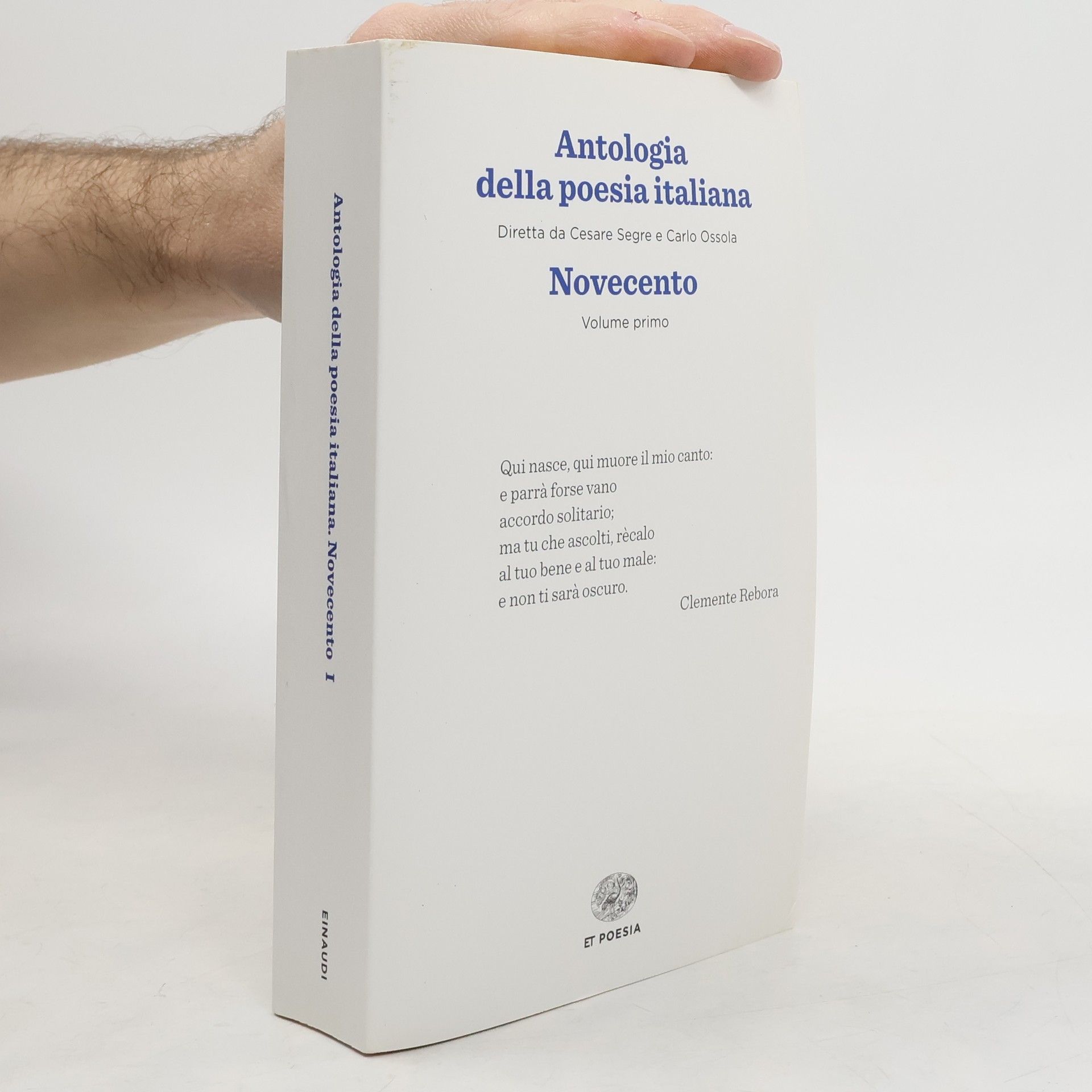Survival in Auschwitz is a mostly straightforward narrative, beginning with Primo Levi's deportation from Turin, Italy, to the concentration camp Auschwitz in Poland in 1943. Levi, then a 25-year-old chemist, spent 10 months in the camp. Even Levi's most graphic descriptions of the horrors he witnessed and endured there are marked by a restraint and wit that not only gives readers access to his experience, but confronts them with it in stark ethical and emotional terms: "[A]t dawn the barbed wire was full of children's washing hung out in the wind to dry. Nor did they forget the diapers, the toys, the cushions and the hundred other small things which mothers remember and which children always need. Would you not do the same? If you and your child were going to be killed tomorrow, would you not give him something to eat today?" --Michael Joseph Gross
Cesare Segre Boeken
Cesare Segre was een Italiaanse filoloog, semioticus en literatuurcriticus. Hij was directeur van het Onderzoekscentrum voor Teksten en Tekstuele Tradities aan het Instituut voor Gevorderde Studies in Pavia. Segre's werk richtte zich op diepgaande analyse van literaire teksten en hun evolutie, met inzichten in hun structuur en betekenis.






Natalia Ginzburg wrote her masterful, Strega Prize winning novel Family Lexicon while living in London in the 1960s. Homesick for her big, noisy Italian family, she summoned them in this novel, which is a celebration of the routines and rituals, in-jokes and insults and, above all, the repeated sayings that make up every family. The father, Giuseppe Levi, is a Jewish scientist, consumed by his work and a mania for hiking. Impatient and intractable, he is constantly at odds with his impressionable and wistful wife Lidia - yet he cannot be without her. Together they preside over their five children in a house filled with argument and activity, books and politics, visitors, friends and famous faces. But as their children grow up against the backdrop of Mussolini's Italy, the Levi household must become not only a home - but a stronghold against fascism. Intimate, enchanting and comedic, Family Lexicon is an unforgettable novel about memory, language, and the lasting power that family holds over all of us
Libera nos a malo
- 281bladzijden
- 10 uur lezen
Liber nos a malo è la presentazione della vita e della cultura di Malo, un paese della provincia vicentina, negli anni Venti e Trenta, ricreata, con un misto di nostalgia affettuosa, di distacco ironico, e di rigorosa intelligenza, dall'autore ormai adulto. Attraverso il microcosmo di Malo viene fissata e trasmessa compiutamente al futuro la vicenda di tutta la nostra società, nel breve periodo in cui passa da una statica e secolare civiltà contadina alle forme più avanzate della modernità, la vicenda addirittura di tutto il nostro mondo con le fratture che hanno segnato la sua precipitosa evoluzione". (Giulio Lepschy)
La canzone di Orlando
- 526bladzijden
- 19 uur lezen
Alternate cover edition ISBN:8817165166 La Canzone di Orlando o Chanson de Roland, scritta tra il 997 e il 1130, è un poema epico appartenente al ciclo carolingio. Si basa su un piccolo avvenimento reale: la battaglia di Roncisvalle, avvenuta il 15 agosto 778, quando la retroguardia di Carlo Magno, comandata da Rolando, prefetto della Marca di Bretagna e dei suoi paladini, di ritorno da una spedizione in Spagna fu attaccata e distrutta dai baschi probabilmente alleati dei saraceni. La storia si svolge in sei giorni, la durata biblica della creazione: gli spazi e i tempi sono accorciati e bruciati, ovunque affiorano gli echi dei Vangeli. Un'opera da riscoprire poiché, come osserva Cesare Segre nell'introduzione, il lettore di oggi è forse più sensibile alla sapienza speculare dei parallelismi e alla delicatezza che affiora tra le maglie dell'austera tessitura eroica.
Una buona parte del libro vuole essere un bilancio di un secolo di letteratura tra i più "lunghi" e significativi: dopo un breve diagramma etico-politico è sui fatti letterari che l'autore concentra l'attenzione. Il capitolo sul legame tra etica e letteratura è il baricentro tonale della raccolta e, a conclusione di decenni di attività critica, propone di riconoscere tra i parametri più importanti per la valutazione di un'opera letteraria quello dell'impegno morale. A più riprese Cesare Segre sottolinea due elementi che rispecchiano una sua idea di letteratura: il favore per scrittori non di professione e l'attenzione a chi affronta temi con forti risvolti morali.
Antologia della poesia italiana Novecento
- 670bladzijden
- 24 uur lezen
Tomo primo: Gozzano, i Crepuscolari, Lucini, Palazzeschi, Marinetti e il Futurismo, Rebora, Boine, Jahier, Campana, Sbarbaro, Onofri, Cardarelli, Saba, Ungaretti, Montale, Quasimodo, Penna, Pavese, Gatto, Sinisgalli, Betocchi, Bertolucci, Sereni, A. Pozzi, Caproni, Parronchi, Bigongiari. Tomo secondo: Luzi, Poesia in dialetto, Fortini, P. Levi, Pasolini, Orelli, Sinigaglia, Erba, A. Rosselli, Pagliarani, Sanguineti, Zanzotto, Giudici. Note filologiche e bio-bibliografiche, indice alfabetico degli autori, indice alfabetico delle opere, dei titoli e degli incipit.